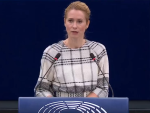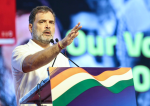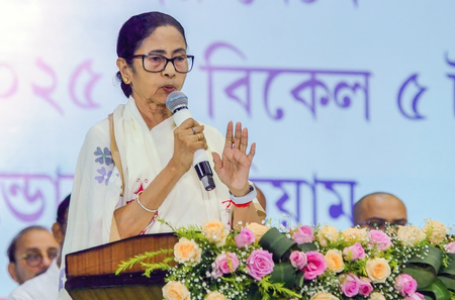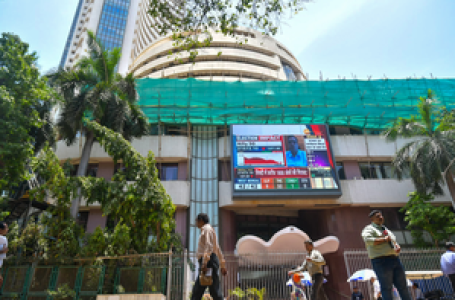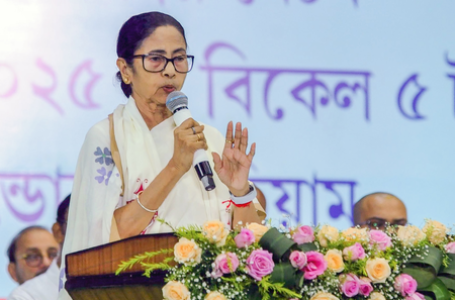
New Delhi: The Lok Sabha on Monday passed the Income Tax Bill, 2025, marking a significant step towards replacing India’s six-decade-old direct tax framework with the government seeking to balance investor confidence, taxpayer relief, and administrative efficiency with the new law.
The legislation, once enacted, will formally replace the 63-year-old tax code with a modernised legal framework designed to align with evolving economic realities.
Finance Minister Nirmala Sitharaman tabled the revised bill in the house, following the government’s decision to withdraw the earlier draft presented on February 13, 2025.
That version had been sent to a Parliamentary Select Committee for review but was withdrawn on August 8 to prevent confusion arising from multiple iterations. The latest bill consolidates all approved changes into a single updated text.
The revised draft incorporates a majority of the 285 recommendations made by the Select Committee, chaired by BJP MP Baijayant Panda. The panel submitted its report on July 21 after a detailed examination of the provisions, focusing on simplifying the language, removing redundancies, and improving procedural clarity. It also made several drafting refinements, including phrase alignment, consequential amendments, and corrections in cross-references.
The key features of the Income Tax Bill, 2025 include the following:
— Deductions under Section 80M of the 1961 Act (Clause 148 of the IT Bill, 2025) are also available to companies that have opted for the new regime.
— Deductions for commuted pension and gratuity for family members are provided under Clause 93 of the 2025 bill.
— Provisions of MAT (Minimum Alternate Tax) and AMT (Alternate Minimum Tax) are separated as two sub-sections under Section 206
— The provisions of AMT apply only to those non-corporates that have claimed deductions. LLPs that have only capital gains income are not liable for AMT if there is no claim for deduction.
— The term “profession” has been added after “business” in clause 187 to enable professionals, with total receipts exceeding Rs 50 crore in a year, to have the facility of prescribed electronic modes of payment.
— Flexibility has been provided for allowing refund claims in cases where the return is not filed in due time, with the removal of Clause 263(1)(ix).
— The provisions related to carry forward and set off of losses have been re-drafted for better presentation, but with the same intent.
— The concept of receipt has been changed with the concept of income, as there in the existing act.
–The utilisation of capital gains on the acquisition of a new capital asset shall be treated as application of income by a registered non-profit organisation, as was in the existing act.
— Where application of regular income falls short of 85 per cent of regular income on account of such income not being received or received late during the tax year, on an option exercised by the assessee, such income shall be deemed as application of income in the tax year in which such income is derived.
— Provisions relating to taxation of anonymous donations have been aligned with the existing provisions, and an exemption has been made available to mixed object registered non-profit organisations also.
— Mixed object registered non-profit organisation has clearly been specified.
— The requirement for mandatory investment and deposit of deemed accumulated income of 15 per cent of regular income in specified modes has been done away with.
— For TDS correction statements, the time period for filing statements has been reduced to two years from 6 years in the existing law. This is expected to reduce the grievances of deductees substantially.
— The amendments of the Finance Act, 2025, which were required to be incorporated, have now been made part of the new Bill.
— The amendments made by the Taxation Laws (Amendment) Bill, 2025 have also been made part of the new Bill.
The new law will come into force from April 1, 2026. It will replace the Income Tax Act, 1961, in operation since April 1, 1962.
The government has made several major system and process reforms since 2014, and the law has also been changed to reflect reforms in corporate tax, personal Income Tax Reforms, taxation of capital gains, merging of two regimes of trust provisions, etc.
Tax administration has been made more efficient, transparent, and taxpayer-friendly, with reforms like the Annual Information System, which also uses verified third-party data to pre-fill returns, the central processing of returns – reducing average processing time by 1/10th (to nearly 10 days) and enabling faster refunds, and faceless assessments and faceless appeals ensuring impartiality and efficiency by eliminating physical interface and geographical barriers.
To reduce litigation, Vivad se Vishwas was introduced in 2020 and 2024, giving a window to settle old tax disputes. The limits for filing an appeal at various forums have also been increased.
The tax policy reforms include those in corporate tax, where a tax rate of 22 per cent was provided to those companies that do not claim specified deductions and exemptions and a 15 per cent for new manufacturing companies for a specified period, and in individual taxation, where the new tax regime provide for liberal slabs and lower rates with increased rebates. The individuals earning up to Rs 12 lakh are not required to pay tax by these slabs, rates and rebates.
Presumptive tax provisions for non-residents have been expanded to include cruise shipping, raw diamonds and also for those providing services and technology for electronic manufacturing.
To promote voluntary tax compliance, updated returns have been enabled for up to four years from the end of the assessment year, and the period for which assessments could be reopened has been reduced to a period of 5 years. Similarly, provisions for the assessment of search cases have been rationalised.
Two separate regimes for trusts have been merged, bringing much relief to non-profit organisations, while the capital gains taxation regime has also been rationalised by the removal of indexation, reduction of rates, and rationalisation of the period of holding.
IANS



